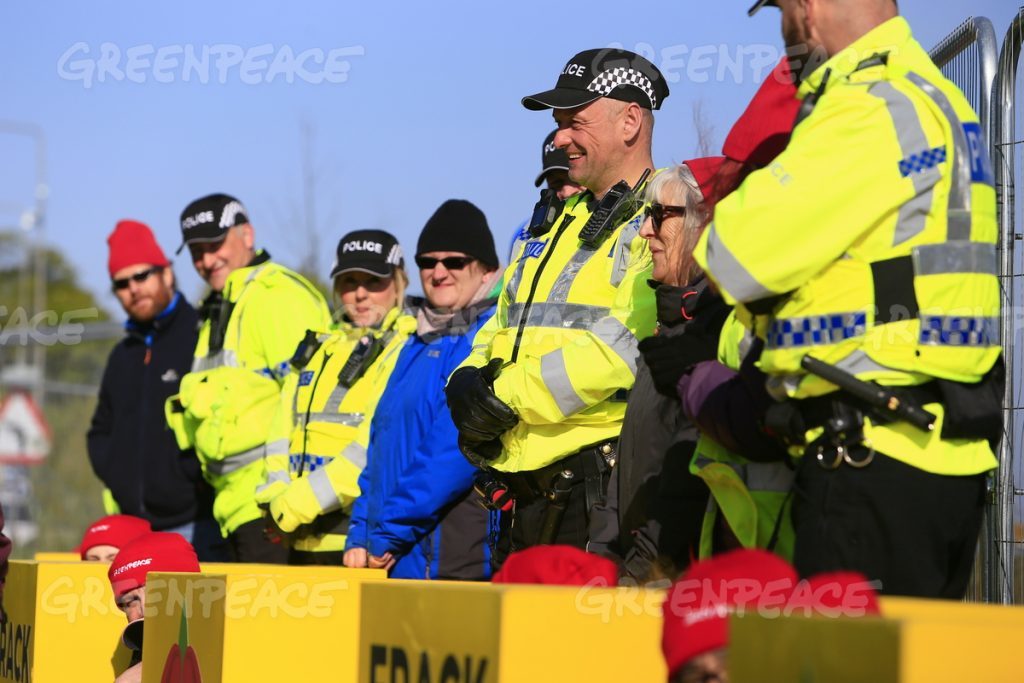
It has been a long, controversial road to the start of “fracking” to extract shale gas from deep underground at Preston New Road, Lancashire.
The shale gas revolution began in the US, and few had heard of fracking this side of the Atlantic when it hit the headlines in 2011 for causing two small earthquakes near Blackpool in April and May.
Cuadrilla, the company operating in the area, suspended its activities and a Government moratorium soon followed.
In 2012, fracking was given the green light again, with new controls to address the risk of seismic activity.
But in early 2013, Cuadrilla announced delays to its plans to carry out tests to extract shale gas through the process until 2014.
By then opposition was on the rise.
Anti-fracking protests at a site in Balcombe, West Sussex, where Cuadrilla was seeking permission to drill for oil, attracted huge publicity in summer 2013.
Green Party MP Caroline Lucas was among a group arrested, tried and cleared of obstructing a public highway and a public order offence during the protests.
The following summer, protesters concerned about impacts of fracking on ground water, the countryside and the climate set up a camp in the Fylde area of Lancashire, close to one of Cuadrilla’s two planned drill sites.
Going “all out for shale”, which they hoped would deliver cheap and secure energy and jobs, ministers intervened to ensure local people received community payouts for hosting shale wells and introduced tax breaks.
They also pledged a ban on fracking in national parks but brought in rules which allow the process to take place three-quarters of a mile (1,200m) underneath the parks and other protected areas.
The case for shale gas exploration was arguably not helped by Lord Howell, the father-in-law of then chancellor George Osborne, who in 2013 called for fracking to take place in the “desolate” North East of England.
It was also undermined by the emergence of a Government report which revealed potential negative impacts of fracking on communities, from reduced house prices to increased traffic, noise and damage to landscapes.
The Government initially published a heavily redacted version, but made the full study public in July 2015 on the orders of the Information Commissioner, just days after Lancashire County Council took its decision on Cuadrilla’s plans for the two sites in Fylde.
By then, however, Lancashire county councillors had rejected the planning application.
Cuadrilla’s two schemes were called in for public inquiry, and in October 2016 the Government gave the green light for the project at Preston New Road.
On the last day of the parliamentary term before this year’s summer break, final consent was given to start fracking there.
To fast-track further fracking schemes, the Government has recently proposed dealing with planning applications at a national level and removing the need for planning permission for non-fracking shale exploration.
In an interview in 2013, then prime minister David Cameron blamed a lack of understanding about the process for objections to it.
He predicted that once wells were up and running later that year there would be more enthusiasm for a home-grown source of energy that would be “good for our country”.
In September, three men were jailed for staging a protest at Cuadrilla’s Lancashire site by climbing on to lorries and blocking traffic.
Simon Blevins, 26, from Sheffield, and Richard Roberts, 36, of London, were both jailed for 16 months, while Rich Loizou, 31, from Devon, was jailed for 15 months for the protest, which took place in July 2017.
A fourth defendant, Julian Brock, 47, from Torquay, was sentenced to 12 months in custody, suspended for 18 months.
Campaigner Bob Dennett’s bid to temporarily block Cuadrilla from commencing work at Preston New Road has now been thrown out by the High Court.
Mr Dennett claimed Lancashire County Council’s emergency response planning and procedures at the site were inadequate, but Mr Justice Supperstone ruled that there was not a “serious issue” to be tried which would justify an interim order.
During the hearing it emerged it costs Cuadrilla £94,000 a day to keep all its kit and equipment on the site.
Whether public acceptance grows with the eventual arrival, some five years later, of the first working wells remains to be seen, but for now support for fracking remains low.
Official Government surveying shows less than a fifth of people support shale gas exploration, compared to a third of people who oppose it and just under half who have no opinion either way.
And despite the latest developments, shale’s future role in the UK’s energy mix is by no means certain – as Labour has pledged to ban fracking if it gets into power.